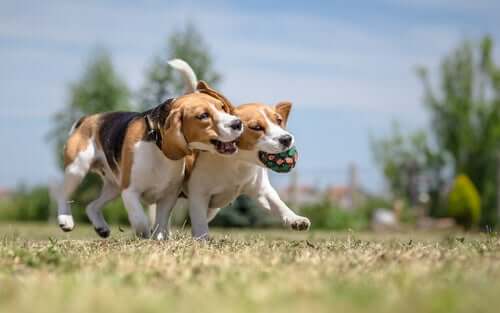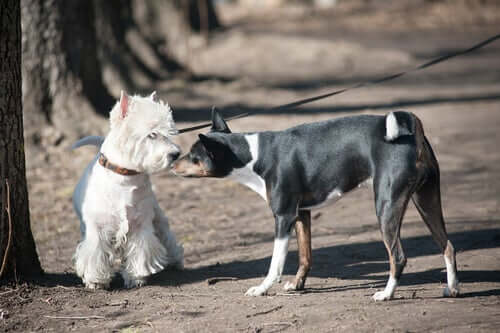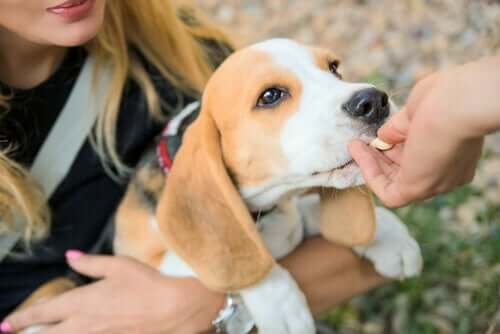Dog Socialization: Three Great Ways to Accomplish It

Veterinarians and experts in animal behavior often warn about the importance of proper dog socialization. Regardless of whether the dog is still a puppy or already an adult, it’s fundamental to train the animal to adequately react to different situations.
So, what are the best ways to socialize a dog? We’ll tell you what you need to know about it here today.
You may wonder why it’s important to socialize pets. Well, dogs are social creatures who belong in a pack. So, the socialization of your four-legged friend will allow them to feel comfortable in any setting. We need to teach them not to fear and display aggressiveness towards:
- People
- Animals
- New environments and situations
Keep in mind that proper dog socialization will prevent future behavioral problems in your furry friend. In addition, a well-socialized dog will be friendlier, more open and therefore easier to train.
So, opportunities for interaction are essential for any animal (even humans) to grow up without fears and aggressive tendencies. You need to know what the best ways are to accomplish this.
Dog socialization: The best ways to carry it out

While the socialization of your dog is a daily process and will continue for as long as the animal lives, it’s important to be especially careful about the first three months of his life. In any case, don’t despair if you have an adult dog who wasn’t socialized at the most opportune time.
Don’t worry, because there are some ways to reverse this unfortunate situation. Here are three of the best ways to socialize a dog:
1. Schedule play dates so that your dog gets used to other animals and people
You must avoid taking your puppy out, as if may catch a disease before their vaccines are complete. Vets recommend waiting about 10-14 days after their last vaccination booster.
However, throughout this period you can ask family and friends to come to your house and bring along their children and pets. As long as the pets are vaccinated and well-behaved, of course.
Ideally, you should encourage a playful environment so that your puppy will make a positive connection with other beings and the various everyday life situations.
In short, your dog should know that there are other cool people he can interact with, apart from their humans. Furthermore, he should know that it’s normal to relate to other animals. So let them sniff freely, play and even allow a bit of rough play and friendly wrestling.
2. Help your dog become familiar with different environments
Once your dog completes his core immunization schedule, then it’s time to go outside and begin taking his first walks around the neighborhood. There he’ll meet other humans and animals who, even though they’re strangers to him, he’s ready to relate to them because he’s previously learned that they’re alright.
Also, this is the time for them to learn that there are many new places to visit, and so there’s no need to be afraid of them. Do always take any necessary precautions and do so without overwhelming them.
Allow them room for exploration so they can get used to the traffic noise –motors, horns, etc. Let them also get close to dogs that are very big –making sure they’re friendly first, of course. (Most adult dogs are quite patient and friendly with puppies.)
It’s very important that you expose them to different situations and environments, both in the city and rural areas.
3. Patience is key for successful adult dog socialization

Socializing an adult dog is no simple task but it can be achieved; all you need is patience. To begin with, you can take the dog on long walks to areas commonly transited by other humans and dogs. Then, slowly begin to make contact with some of them.
If your pet has a positive attitude with other animals and people, then reward them in any way you like. It may be a treat, a pat on the back, a word of encouragement, etc. On the other hand, if they’re fearful or aggressive, move away from the conflict zone and try it again at a later time.
You can also ask a family member or friend who has a well-socialized dog to walk along with you both. This way your furry friend will gradually get used to the company of other pets and humans.
In any case, if your attempts to socialize a dog aren’t fruitful, consult a veterinarian, an animal behavior specialist, or a trainer.